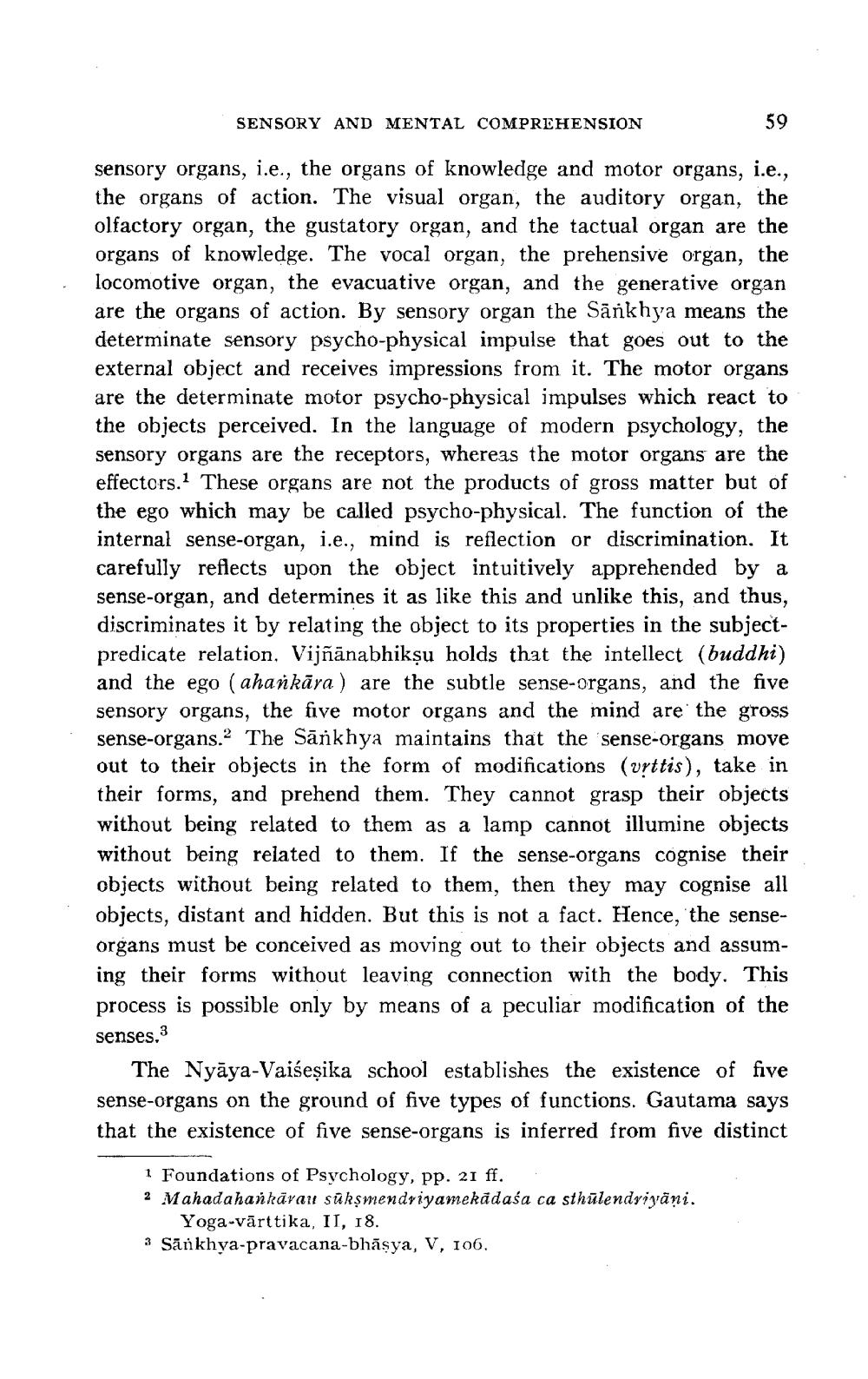________________
SENSORY AND MENTAL COMPREHENSION
59
sensory organs, i.e., the organs of knowledge and motor organs, i.e., the organs of action. The visual organ, the auditory organ, the olfactory organ, the gustatory organ, and the tactual organ are the organs of knowledge. The vocal organ, the prehensive organ, the locomotive organ, the evacuative organ, and the generative organ are the organs of action. By sensory organ the Sārkhya means the determinate sensory psycho-physical impulse that goes out to the external object and receives impressions from it. The motor organs are the determinate motor psycho-physical impulses which react to the objects perceived. In the language of modern psychology, the sensory organs are the receptors, whereas the motor organs are the effectors. These organs are not the products of gross matter but of the ego which may be called psycho-physical. The function of the internal sense-organ, i.e., mind is reflection or discrimination. It carefully reflects upon the object intuitively apprehended by a sense-organ, and determines it as like this and unlike this, and thus, discriminates it by relating the object to its properties in the subjectpredicate relation, Vijñānabhikṣu holds that the intellect (buddhi) and the ego (ahankāra ) are the subtle sense-organs, and the five sensory organs, the five motor organs and the mind are the gross sense-organs. The Sankhya maintains that the sense-organs move out to their objects in the form of modifications (vrttis), take in their forms, and prehend them. They cannot grasp their objects without being related to them as a lamp cannot illumine objects without being related to them. If the sense-organs cognise their objects without being related to them, then they may cognise all objects, distant and hidden. But this is not a fact. Hence, the senseorgans must be conceived as moving out to their objects and assuming their forms without leaving connection with the body. This process is possible only by means of a peculiar modification of the senses. 3
The Nyāya-Vaisesika school establishes the existence of five sense-organs on the ground of five types of functions. Gautama says that the existence of five sense-organs is inferred from five distinct
1 Foundations of Psychology, pp. 21 ff. 2 Mahadahankārau sūkşmendriyamekådaśa ca sthūlendriyāni.
Yoga-vārttika, II, 18. 3 Sankhya-pravacana-bhāsya, V, 106.




